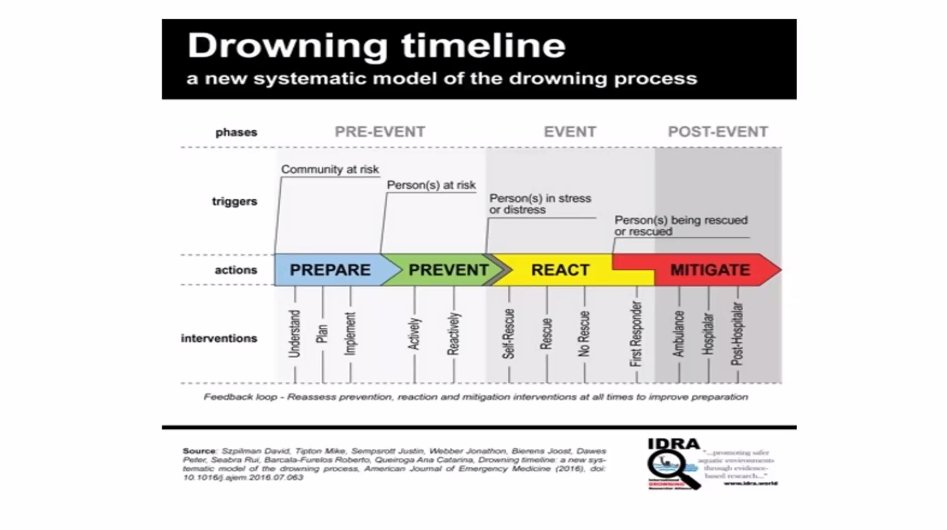
Physiology News Magazine
Meeting Report: Drowning Prevention and Treatment Online Summit
11 – 13 October 2023, Online worldwide
Events
Meeting Report: Drowning Prevention and Treatment Online Summit
11 – 13 October 2023, Online worldwide
Events
https://doi.org/10.36866/pn.132.36
The Society was delighted to partner with the International Drowning Researchers’ Alliance (IDRA) in October to host an important online summit on drowning prevention and treatment. It brought together experts in drowning prevention from both a theory and practice perspective, to ensure that research is converted into action, with the aim of saving lives worldwide.

The online summit was organised by Professor Mike Tipton (University of Portsmouth, UK), a founding member of IDRA, and also Dr Paddy Morgan (North Bristol NHS Trust, UK), Dr Jenny Smith (University of Chichester, UK) and Adrian Mayhew (Surf Life Saving GB, UK). IDRA is an international scientific network devoted to all aspects of the use of quantitative and technical methods in drowning research to promote safety in and around water environments.
Professor Tipton commented, “This was a vital meeting between researchers exploring all aspects of drowning prevention and treatment and the people who are out there saving lives. Only by bringing together these experts do we stand a chance at stemming this global problem. This meeting offered a real opportunity to share recent research into the physiological and clinical aspects of drowning and convert that knowledge into life-saving action.”
Drowning remains a global pandemic, claiming the lives of more than 236,000 people per year. More than 90% of those drowning deaths occur in low- and middle-income countries, and the drowning threat is set to get worse with climate change and rising sea levels. It has been estimated that between 80% and 90% of all drownings are preventable, highlighting the need for greater education, discussion, and research into drowning in order to curb this threat.
Bringing together physiologists and life-saving experts from around the world who work in both clinical and community settings to share current knowledge and thinking across many aspects of drowning is essential in addressing this global problem. Physiologists are vital in this action against drowning; only by understanding the physiological mechanisms of the drowning process, can we build life-saving interventions.
More than 300 people registered from 38 countries, and each day of the summit attracted more than 150 attendees to hear the day’s 12 presentations from experts from organisations including Lifeguards Without Borders (US), The Royal Society for the Prevention of Accidents (UK), Surf Life Saving GB (UK) and National Ambulance Resilience Unit (UK). The online programme was tailormade to be inclusive of time zones and enabled presenters from all over the world to showcase their research.
Dr Victoria Laxton, Transport Research Laboratory, UK said on social media,
“Great experience speaking at ‘Drowning Prevention and Treatment’ global webinar this morning. I hope you all enjoyed my talk on the fatigue lessons we could learn from the bus industry!”
Topics covered included drowning prevention strategies and impact, community involvement and preparedness, innovations in drowning risk assessment and rescue, and international perspectives, including climate change.
Kai Valonen from Safety Investigation Authority Finland commented,
“Thank you for the opportunity to talk about our recent study on drownings in Finland. I’m glad if Safety Investigation Authority in Finland can contribute to the global drowning prevention challenge”.
If you missed it, those talks that speakers have agreed to be uploaded will be available on The Society’s website at www.physoc.org/.
